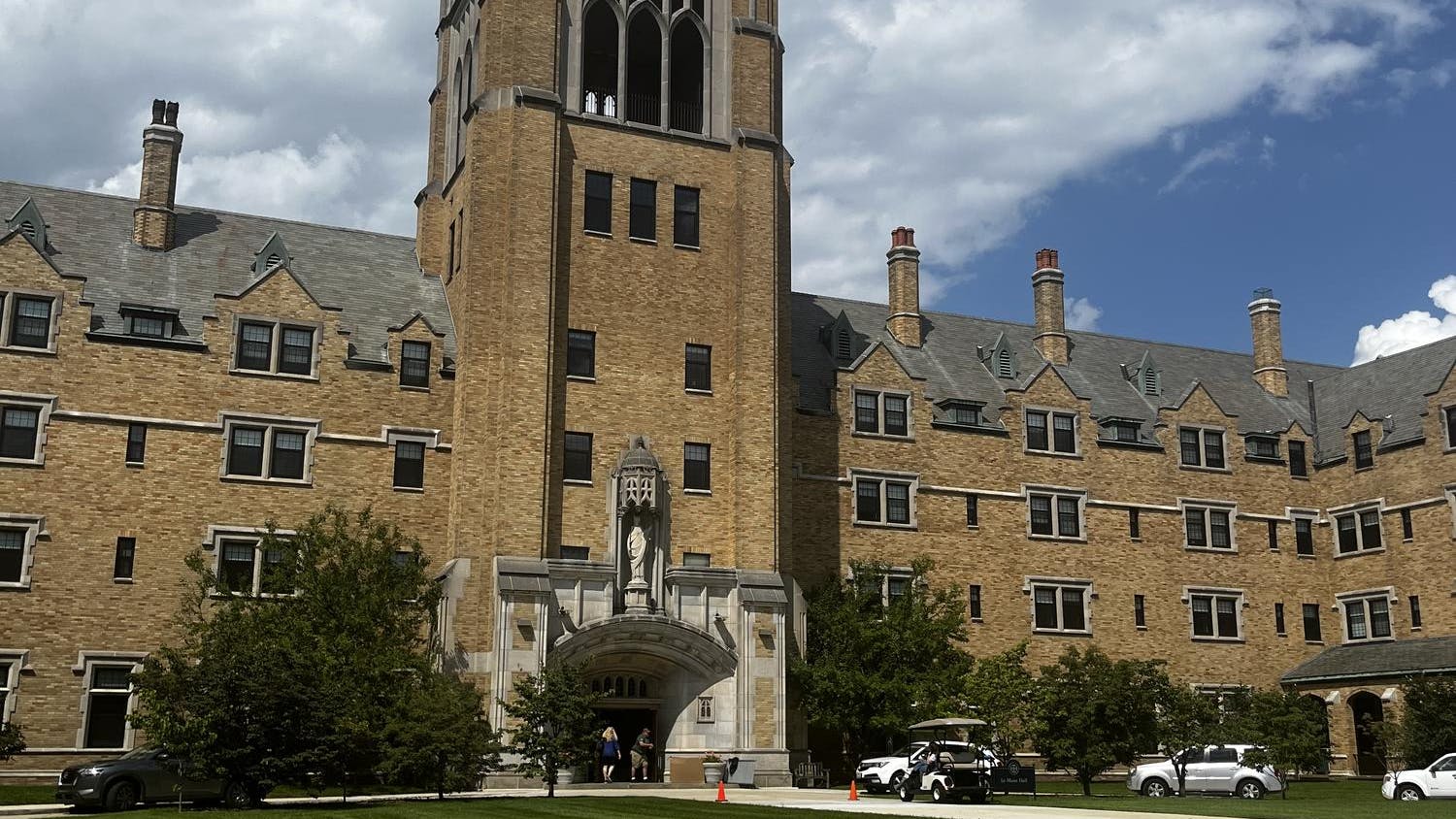Even before women were allowed to attend Notre Dame, students were studying abroad in Innsbruck, Austria, the University's first study abroad location.
This spring, 46 years and nearly 1,300 students later, the Innsbruck program enrolled its final class.

"I'm really disappointed in the Office of International Studies' [OIS] decision," senior Madelaine Ambrus, who spent a year abroad in Innsbruck, said. "I think Notre Dame is losing out in a really important part of its history. Notre Dame stresses the importance of tradition, but this decision is completely contradictory to the University's position."
Notre Dame will continue to provide a German study abroad opportunity at its site in Berlin, which was initiated in 2001, assistant director of OIS David Younger said.
OIS decided to discontinue the Innsbruck program because its popularity decreased over the last decade, to the point where only two students applied for the full-year program, Younger said.
"Student interest is the key factor in our ability to create and sustain study abroad programs," Younger said.
Younger said the decline of the Innsbruck program came at the same time as the addition of other study abroad programs.
"We feel that a large part of the decline was the added variety of study abroad destinations," he said.

Younger said OIS tried to rebuild the program in Innsbruck by incorporating an option for business students and adding a semester option.
Some students said these very actions, particularly the addition of the semester option, actually decreased Innsbruck's popularity.
"I think that OIS kind of shot themselves in the foot, so to speak," Ambrus said. "It's basically their own fault that there was a lack of demand, as they put it, because they cut down the year-long program into a semester-long program."
Senior Katy Smith, who also spent her sophomore year in Innsbruck, said the year-long program was an asset to the Innsbruck program.
"My year was the first year that they did a semester program and the semester program allowed students to take classes in English for the first time," Smith said.
"To be honest, I think that was a big mistake," she said. "I think kids stopped doing the year-long program because they had the semester option as well."
Smith said her year abroad was the best year of her college career.
"I only had the option of a year to go over. It kind of forced me to be like, ‘if you want to go abroad, you are going to do a year,'" she said. "It was a decision I never would have chosen otherwise, but I'm so glad that Notre Dame forced me to do it."
Smith said the Berlin program existed when she was choosing an abroad location, but she did not consider it.
"I don't know anyone who went. It wasn't at all popular," she said. "Innsbruck was the main German program at the time. And it was also the year-long one and it was a lot more structured than the Berlin program."
Another benefit of the Innsbruck program was the housing option. Students lived in dorms with European students during the week, Ambrus said, and with a guest family on the weekends.
"In the Innsbruck program, you are immersed within the Austrian culture in the form of having a guest family. They teach you so much about the Austrian culture," she said.
In the Berlin program, students can choose where they will live, Younger said.
"During the pre-session, the students begin to search for housing in the city for the duration of the year or the semester," he said. "Some students may choose to stay in a German dormitory, find roommates or even stay with a host family."
Ambrus said the housing setup in Innsbruck contributed to her feeling of community while abroad.
"Basically the sense of community that was present in Innsbruck is going to be completely different if they replace it with the Berlin program," she said. "[The students] were kind of like a little family. And then we also had the extension of the guest family."
Smith also said the size of the cities would contribute to a difference in the feeling of community.
"It's a very different culture [in Berlin.] I think Berlin is a huge city, where within Innsbruck you see a lot of the same faces," Smith said. "You really do become part of the town. People begin to recognize you."
Younger said the Berlin site is appealing because its language program is, relative to the Innsbruck program, more demanding.
"The Berlin Consortium for German Studies program is different from the Innsbruck program in that it is a much more elite German language program," he said. "Students on this program enroll at an elite German institution, Freie Universität, and [it] requires higher level German language proficiency than the Innsbruck program does."
Ambrus and Smith both said they are upset about OIS' decision.
"Everyone thinks it's a huge mistake," Smith said. "People are shocked and upset and I think students will miss out on a great opportunity because of this."
Ambrus lamented the loss for future German language students.
"I had an amazing year. It was definitely the best year of my life, no question," Ambrus said. "So the fact that other people aren't going to be able to have an experience similar to mine ... I feel sorry for Notre Dame because they are losing an extremely important asset."












